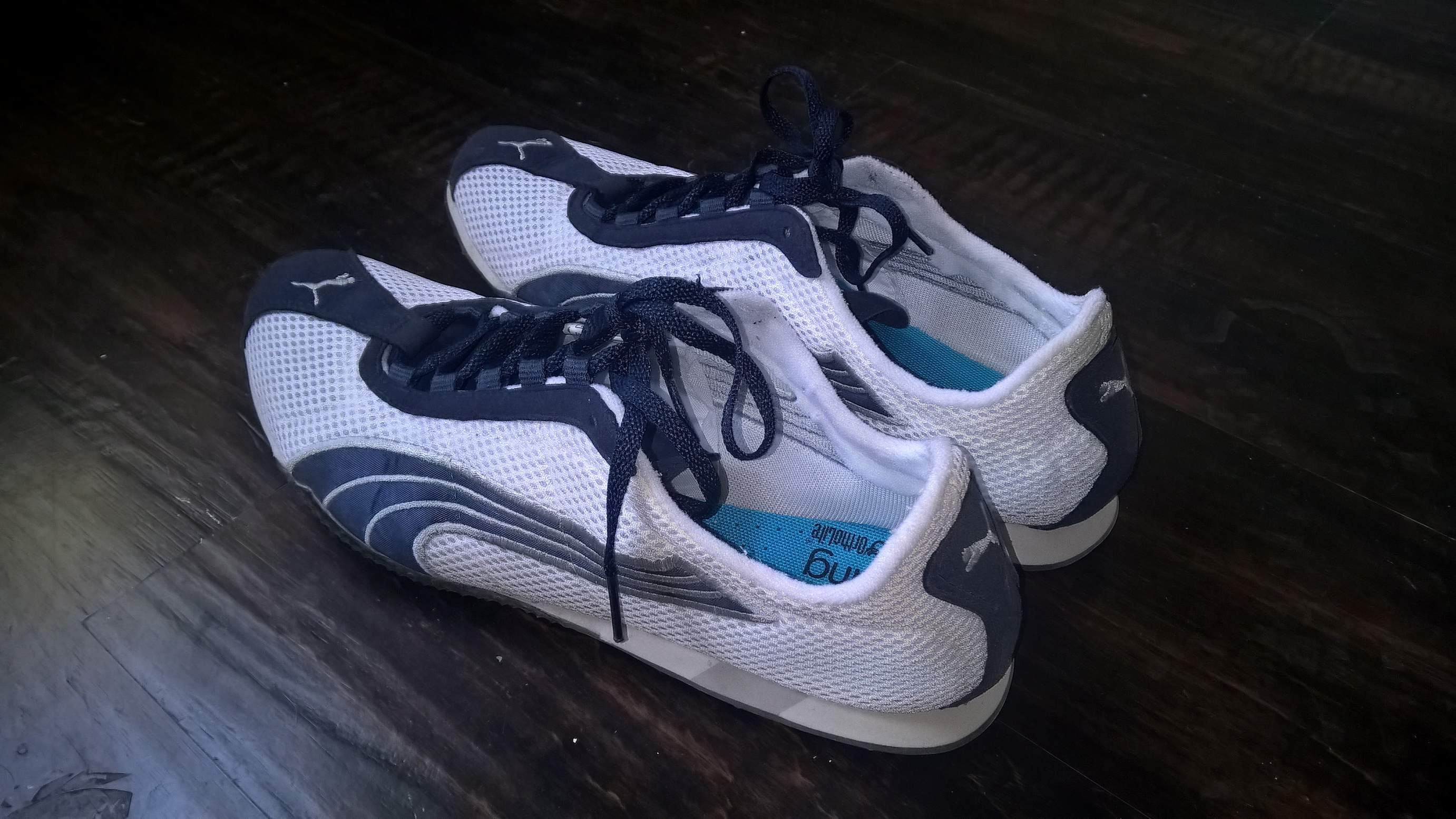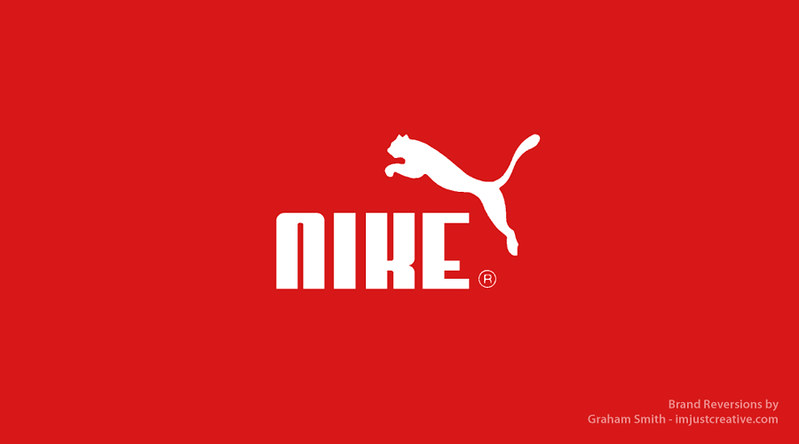Michael Weinstein is a seasoned writer and a dedicated expert in work safety, footwear, and popular shoe brands. With years of research and expertise, he's...Read more
Michael Weinstein is a seasoned writer and a dedicated expert in work safety, footwear, and popular shoe brands. With years of research and expertise, he's...Read more
Does Nike Own Puma? That’s a burning question for sneaker enthusiasts and sports fans alike. Let’s dive into the exciting world of sports brands!
Now, we all know Nike and Puma are big players in the athletic shoe game, but do they have any ownership ties? Are they secretly working together to dominate the market?
Well, my young sports aficionado, fret not! I’m here to unravel the mystery behind Nike and Puma’s relationship, or lack thereof. So, buckle up and get ready for a fascinating journey through the sneaker industry!

Does Nike Own Puma?
Many people often wonder if Nike owns Puma due to their prominence in the athletic footwear and apparel industry. In this article, we will delve into the history and ownership of both Nike and Puma, exploring their relationships and dispelling any misconceptions. By examining their origins, acquisitions, and current standings in the market, we aim to provide a comprehensive answer to the question: does Nike own Puma?
Nike: A Global Sporting Powerhouse
Nike is an American multinational corporation renowned for its sports footwear, apparel, accessories, and equipment. Founded in 1964 by Bill Bowerman and Phil Knight as Blue Ribbon Sports, the company later changed its name to Nike, Inc. and quickly rose to prominence. With a focus on innovation and endorsements by legendary athletes, Nike became one of the leading brands in the athletic industry.
Nike has a vast portfolio of subsidiary brands, including Converse and Hurley. However, it is important to note that Puma is not part of Nike’s ownership. The misconception may arise due to their close competition and similar target markets, but the two companies remain distinct entities in the industry.
Despite not owning Puma, Nike has maintained its dominant position in the global sportswear market, constantly releasing innovative products and securing lucrative partnerships with sports teams, athletes, and celebrities.
Puma: A German Heritage of Athletic Excellence
Puma, on the other hand, is a German multinational corporation that specializes in athletic and casual footwear, apparel, and accessories. Established in 1948 by Rudolf Dassler, the brother of Adidas founder Adolf Dassler, Puma has a rich history in the athletic industry.
Puma experienced great success during the mid-20th century, with notable associations with legendary athletes such as Pelé and Maradona. While the company faced some struggles in the 1990s, it underwent a resurgence in the early 2000s, focusing on lifestyle and fashion partnerships to regain its market presence.
It’s important to clarify that Puma is not owned by Nike. While both brands compete in the same market, their ownership structures and corporate entities remain separate. Puma continues to operate under its own brand and has its unique offerings in terms of design, style, and marketing.
The Separation of Nike and Puma
There are no ownership ties between Nike and Puma. While Nike has a vast portfolio of subsidiary brands, Puma is not one of them. Each company operates independently in the market and pursues its individual strategies to maintain their respective positions.
It is worth noting, however, that both Nike and Puma have engaged in acquisitions and partnerships to strengthen their positions. Nike has made strategic acquisitions in the past, such as Converse in 2003, to expand its product offerings and market reach. Similarly, Puma has formed collaborations with fashion designers and celebrities to enhance its brand image. These actions showcase the competitive nature of the industry but do not imply ownership between Nike and Puma.
In conclusion, Nike does not own Puma. Although they are fierce competitors in the sporting goods industry, both companies operate independently and have their strategies for success. It is crucial to differentiate between their brand identities and ownership structures to have a clear understanding of the industry landscape.
The Rise of Nike and Puma in the Global Athletic Market
Over the years, both Nike and Puma have solidified their positions as global athletic powerhouses, competing for market share and consumer loyalty. Let’s delve into the rise and distinct characteristics of these industry giants.
Nike: Revolutionary Innovation and Iconic Branding
Nike’s success can be attributed to its constant pursuit of innovation and its ability to establish strong emotional connections with consumers. The company revolutionized the footwear industry with the introduction of the Nike Air technology, providing unparalleled comfort and performance to athletes.
Additionally, Nike’s branding strategies have captured the hearts of consumers worldwide. The iconic “Just Do It” slogan, coupled with endorsements from legendary athletes like Michael Jordan and Serena Williams, has solidified Nike’s position as a leader in athletic culture and lifestyle.
With a global presence, Nike sponsors major sports teams and athletes, ensuring high visibility and association with excellence in the world of sports. The brand’s commitment to sustainability and social responsibility has also resonated with consumers, further enhancing its reputation.
Puma: Style, Individuality, and Performance
While Puma may not have the same market share as Nike, it has carved out its niche by offering a unique blend of style, individuality, and performance. The brand has successfully combined athletic functionality with fashion-forward designs, appealing to consumers’ desire for both performance and aesthetics.
Puma’s collaborations with high-profile designers and celebrities, such as Rihanna and Selena Gomez, have helped redefine its brand image and attract a younger, fashion-conscious audience. The company capitalizes on its heritage in both sports and streetwear to create a distinct identity that resonates with its target market.
In recent years, Puma has also intensified its focus on sustainability, employing eco-friendly materials and production practices. This emphasis on environmental consciousness aligns with the growing consumer demand for sustainable products.
The Conclusion
While Nike and Puma may share a similar target market and compete fiercely in the global athletic industry, it is important to note that Nike does not own Puma. Each company operates independently and has its strategic vision, branding, and product offerings. Nike has solidified its position as a global sporting powerhouse through constant innovation and iconic branding, while Puma has capitalized on its German heritage and fashion-forward designs to attract a distinct consumer base. Understanding the separate identities and ownership structures of these companies helps to dispel any misconceptions and allows consumers to make informed choices based on their preferences.

Frequently Asked Questions
Here, we have answered some common questions related to the topic of Nike and Puma ownership.
1. Have Nike and Puma ever been owned by the same company?
No, Nike and Puma have never been owned by the same company. They are two separate and independent sportswear companies that compete in the global market.
Both Nike and Puma were founded by different individuals and have developed their own unique brand identities over the years. While they may have similarities in their product offerings and target customer base, there is no direct ownership connection between the two.
2. Does Nike own Puma?
No, Nike does not own Puma. Nike and Puma are distinct and separate companies that operate independently in the sportswear industry.
Nike was founded in 1964 by Bill Bowerman and Phil Knight, while Puma was founded in 1948 by Rudolf Dassler. Both companies have had their own success stories and have become well-known brands in the athletic apparel and footwear market.
3. Is there any collaboration between Nike and Puma?
No, there is no official collaboration or partnership between Nike and Puma. Both companies operate as competitors in the sportswear industry and focus on developing and promoting their own products.
While there may be instances where athletes sponsored by Nike or Puma compete against each other in sporting events, this does not indicate a collaboration between the two companies.
4. Which company is larger, Nike or Puma?
Nike is generally considered the larger company compared to Puma. Nike has a larger global presence and a higher market share in the sportswear industry.
As of 2020, Nike’s annual revenue was over $37 billion, while Puma’s annual revenue was around $6.7 billion. Nike’s larger size allows the company to invest more in research and development, marketing, and global expansion, contributing to its dominant position in the market.
5. Are there any similarities or differences between Nike and Puma products?
While Nike and Puma are competitors in the sportswear industry, there may be some similarities and differences in their product offerings.
Both companies produce athletic footwear, apparel, and accessories for various sports and lifestyle activities. However, their design aesthetics, technology features, and target markets may differ.
Nike is known for its innovative technologies, such as Nike Air and Flyknit, and caters to a wide range of athletes and sports enthusiasts. Puma, on the other hand, emphasizes lifestyle and casual sportswear, with collaborations with famous designers and celebrities.
6. Is Puma still owned by Adidas?
No, Puma is not owned by Adidas. In 1948, the relationship between the two brothers, who originally founded the company together, deteriorated and they decided to split. This led to the formation of two separate entities: Adidas and Puma. Since then, Puma has operated as an independent brand, separate from Adidas.
7. Who acquired Puma?
Puma, a well-known brand in sports apparel and footwear, was acquired by Artémis Group. Artémis Group, founded in 1992 by French billionaire François Pinault, is a luxury powerhouse and currently owns Puma. The partnership between Puma and Artémis Group has solidified Puma’s position as a leading brand in the industry, benefiting from the expertise and resources of the luxury conglomerate. Under the ownership of Artémis Group, Puma continues to thrive and innovate in the world of sports fashion, offering high-quality products to athletes and fashion enthusiasts worldwide.
8. Does Nike own Adidas?
Nike does not own Adidas. After the passing of Horst Dassler, the son of Adolf Dassler, in 1987, Adidas ceased to be a family-owned company. Instead, it is currently owned by Adidas AG, a multinational corporate group that has multiple shareholders. This means that Adidas is no longer under the ownership or control of Nike, its main competitor in the athletic footwear and apparel industry. Each company operates independently with its own strategies and business models to compete in the market.
9.
Summary
So, to wrap things up: Nike does not own Puma. They are actually separate companies that compete with each other. While Nike is a well-known sports brand, Puma has its own unique style and is popular too. So, don’t get confused, they are not owned by the same company!
Recent Posts
Puma sneakers have different sizing depending on the specific style and model. It's recommended to check the product description or reviews for each sneaker to determine if they run small or large....
How To Lace Puma Shoes? If you're a fan of Puma shoes and want to learn how to lace them, you've come to the right place! Lacing your Puma shoes properly not only adds a stylish touch but also...
